第52章 ENGLAND UNDER HENRY THE THIRD,CALLED,OF WINCHESTER
King Philip of France had died,and had been succeeded by Prince Louis,who had also died after a short reign of three years,and had been succeeded by his son of the same name-so moderate and just a man that he was not the least in the world like a King,as Kings went.ISABELLA,King Henry's mother,wished very much (for a certain spite she had)that England should make war against this King;and,as King Henry was a mere puppet in anybody's hands who knew how to manage his feebleness,she easily carried her point with him.But,the Parliament were determined to give him no money for such a war.So,to defy the Parliament,he packed up thirty large casks of silver-I don't know how he got so much;I dare say he screwed it out of the miserable Jews-and put them aboard ship,and went away himself to carry war into France:accompanied by his mother and his brother Richard,Earl of Cornwall,who was rich and clever.But he only got well beaten,and came home.
The good-humour of the Parliament was not restored by this.They reproached the King with wasting the public money to make greedy foreigners rich,and were so stern with him,and so determined not to let him have more of it to waste if they could help it,that he was at his wit's end for some,and tried so shamelessly to get all he could from his subjects,by excuses or by force,that the people used to say the King was the sturdiest beggar in England.He took the Cross,thinking to get some money by that means;but,as it was very well known that he never meant to go on a crusade,he got none.In all this contention,the Londoners were particularly keen against the King,and the King hated them warmly in return.Hating or loving,however,made no difference;he continued in the same condition for nine or ten years,when at last the Barons said that if he would solemnly confirm their liberties afresh,the Parliament would vote him a large sum.
As he readily consented,there was a great meeting held in Westminster Hall,one pleasant day in May,when all the clergy,dressed in their robes and holding every one of them a burning candle in his hand,stood up (the Barons being also there)while the Archbishop of Canterbury read the sentence of excommunication against any man,and all men,who should henceforth,in any way,infringe the Great Charter of the Kingdom.When he had done,they all put out their burning candles with a curse upon the soul of any one,and every one,who should merit that sentence.The King concluded with an oath to keep the Charter,'As I am a man,as I am a Christian,as I am a Knight,as I am a King!'
It was easy to make oaths,and easy to break them;and the King did both,as his father had done before him.He took to his old courses again when he was supplied with money,and soon cured of their weakness the few who had ever really trusted him.When his money was gone,and he was once more borrowing and begging everywhere with a meanness worthy of his nature,he got into a difficulty with the Pope respecting the Crown of Sicily,which the Pope said he had a right to give away,and which he offered to King Henry for his second son,PRINCE EDMUND.But,if you or I give away what we have not got,and what belongs to somebody else,it is likely that the person to whom we give it,will have some trouble in taking it.It was exactly so in this case.It was necessary to conquer the Sicilian Crown before it could be put upon young Edmund's head.It could not be conquered without money.The Pope ordered the clergy to raise money.The clergy,however,were not so obedient to him as usual;they had been disputing with him for some time about his unjust preference of Italian Priests in England;and they had begun to doubt whether the King's chaplain,whom he allowed to be paid for preaching in seven hundred churches,could possibly be,even by the Pope's favour,in seven hundred places at once.'The Pope and the King together,'said the Bishop of London,'may take the mitre off my head;but,if they do,they will find that I shall put on a soldier's helmet.I pay nothing.'
The Bishop of Worcester was as bold as the Bishop of London,and would pay nothing either.Such sums as the more timid or more helpless of the clergy did raise were squandered away,without doing any good to the King,or bringing the Sicilian Crown an inch nearer to Prince Edmund's head.The end of the business was,that the Pope gave the Crown to the brother of the King of France (who conquered it for himself),and sent the King of England in,a bill of one hundred thousand pounds for the expenses of not having won it.
The King was now so much distressed that we might almost pity him,if it were possible to pity a King so shabby and ridiculous.His clever brother,Richard,had bought the title of King of the Romans from the German people,and was no longer near him,to help him with advice.The clergy,resisting the very Pope,were in alliance with the Barons.The Barons were headed by SIMON DE MONTFORT,Earl of Leicester,married to King Henry's sister,and,though a foreigner himself,the most popular man in England against the foreign favourites.When the King next met his Parliament,the Barons,led by this Earl,came before him,armed from head to foot,and cased in armour.When the Parliament again assembled,in a month's time,at Oxford,this Earl was at their head,and the King was obliged to consent,on oath,to what was called a Committee of Government:consisting of twenty-four members:twelve chosen by the Barons,and twelve chosen by himself.
But,at a good time for him,his brother Richard came back.
Richard's first act (the Barons would not admit him into England on other terms)was to swear to be faithful to the Committee of Government-which he immediately began to oppose with all his might.Then,the Barons began to quarrel among themselves;